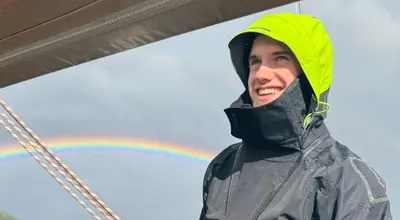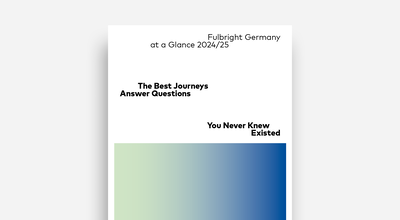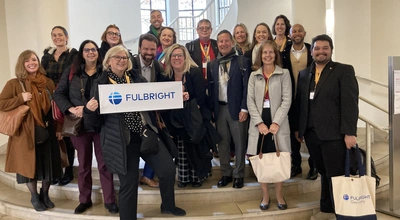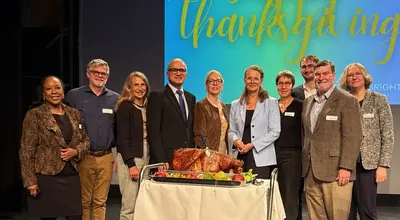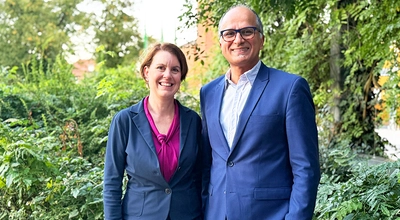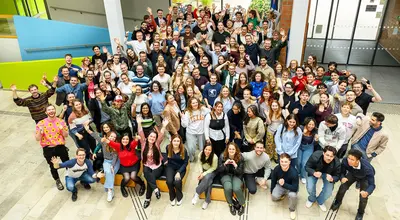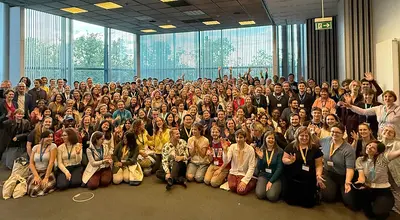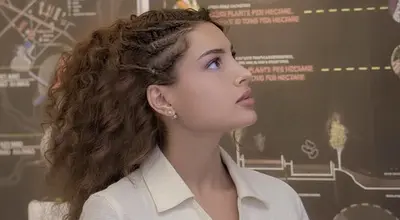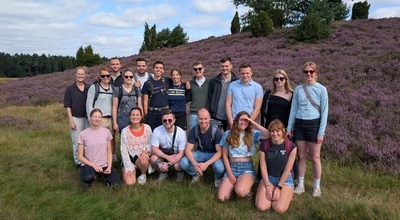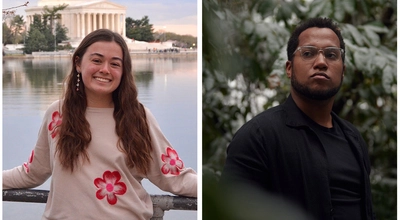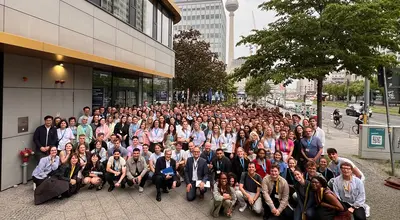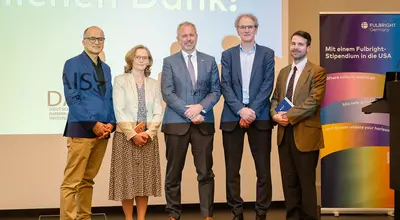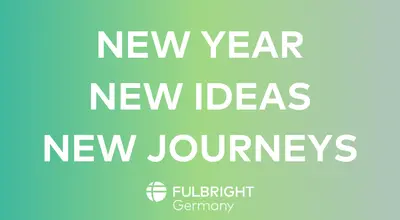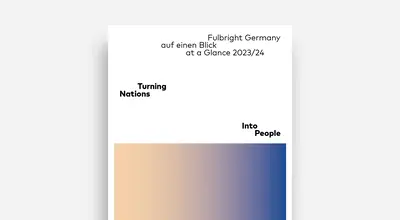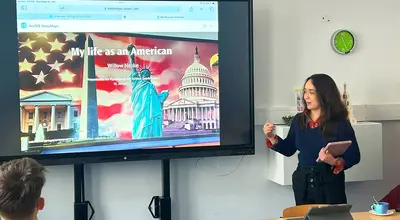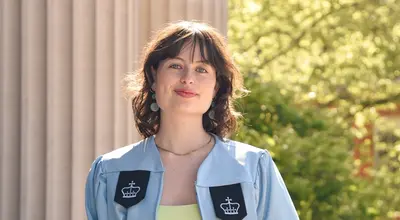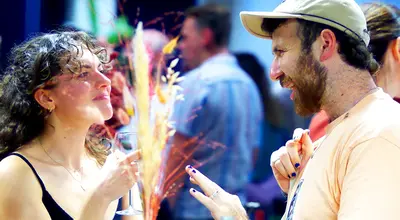How Small Town Study Abroad Can Support a Transatlantic Community (Interview)
By Brandon Bohrn | Fulbrighter Focus

International connections are more than nations, they are built on people and the relationships between them. But how and when do we build these and sustain them through times of crisis like the coronavirus pandemic? For Fulbright Alumnus and project manager at the Bertelsmann Foundation Brandon Bohrn, it starts with study abroad. To find out more, we talked to Brandon about transatlantic relations, the pandemic, and the power of academic exchange to connect people. Read his insights in the interview below.
Welcome and thanks for talking with us! Would you like to quickly introduce yourself?
Hi, I’m Brandon Bohrn and I manage the German-American relations project at the Bertelsmann Foundation, a transatlantic think-tank based in Washington, D.C.
In 2015, I traveled to Wanne-Eickel, Germany, a city in the heart of the ‘Ruhrgebiet’, to serve as a https://fulbright.de/en/grants/program/english-teaching-assistant-grant. When asked about the location of my school, the response typically triggered confused and sometimes sympathetic reactions. Wanne-Eickel is not exactly a major cultural hub.
However, the ’Pott’ as it’s popularly known, grew on me very quickly. I enjoyed my colleagues and students so much that I stayed for an additional school year. Of many highlights, the most cherished was leading the English language instruction for the school’s international class – a group comprised predominantly of Syrian refugees.
As a former Fulbright ETA, could you suggest any ways Fulbrighters can continue to contribute to the global community in these novel circumstances?
Stay connected! Whether you have returned to your country of origin or are currently isolated in your host country, stay connected with your Fulbright community as much as possible. Regardless of whether it is physical or virtual, exchange is at the heart of the Fulbright program. While isolation has limited the tools with which Fulbrighters can complete their respective assignments, virtual methods of communication and work are of significant value at this time. If you have a free moment, send a message of support to your colleagues, students, and friends. It makes a world of difference to stay connected in this increasingly disconnected time.
How has the pandemic affected you personally?
My colleagues and I at the Bertelsmann Foundation have responded very well to the challenges imposed by the pandemic. As most folks in our community are working from home these days, we’ve adapted accordingly. We’ve increased our number of online events, such as webinars, film screenings, and podcasts covering a wide range of transatlantic topics.
Personally, as far as ‘crises’ go, I can’t help but be thankful for my current situation. Of course, I am mostly separated from my loved ones, but when I look at the tough times folks are facing around the world, I am simply thankful for my family’s good health and a job that allows me to work from home. On a more lighthearted note, I am very happy that the Bundesliga has returned to action – my support for Schalke has not waned since my Fulbright days in Wanne-Eickel!
What effects have you seen from the virus on transatlantic relationships?
It is no secret that the transatlantic relationship has weakened over the past few years, and the pandemic has certainly not changed that development. However, in these difficult times, I think it is important to stress that the transatlantic relationship is far more than ties between Washington and Brussels or Berlin. The people-to-people connections are at the heart of it all.
A lot of the folks I encountered in Wanne-Eickel had never met an American before – Fulbright made that possible. Recently, I have been in contact with colleagues and friends from my time there. I feel like those who know me, those with whom I have built a strong connection, are able to separate the politics from the people. For those Fulbrighters who served in Europe or the U.S., this is the time to reach out to your communities with messages of support!
How do you think the future of international exchange will look after coronavirus?
While the trajectory of the pandemic and its long-lasting impact on international exchange is unclear, it has certainly revealed the value of virtual exchange. Organizations that previously relied on in-person exchange programs have been forced to develop virtual exchange capabilities. While I imagine physical exchanges will remain in favor in the long term, I believe the knowledge and tools gathered during this time will promote virtual exchanges even after the pandemic has ended. At the Bertelsmann Foundation, our Congressional European Parliamentary Initiative (CEPI), an annual exchange program that connects staffers from the German Bundestag, European Parliament, and U.S. Congress, will be completely online this year!
To come back to a more personal note, how have you been getting through and passing time during #socialdistancing?
I’ve been staying active and connected as much as possible. Besides staying busy with work, I play the guitar and try to get at least 10,000 steps a day. It’s also been a time of reflection. Of many experiences over the past years, my time in Wanne-Eickel as a Fulbrighter is one of the most important to me. It was an incredibly formative experience, and I am thankful for the close, long-lasting bonds I forged with my community.
Learn more about being an https://fulbright.de/en/grants/program/english-teaching-assistant-grant here!
